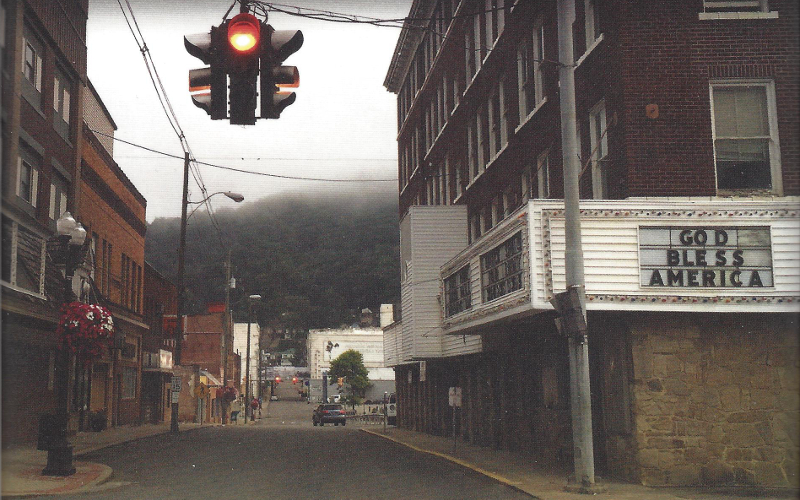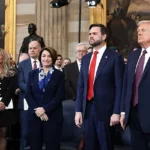Blog Post
How the media and the elites missed the oncoming Trump revolt
By Jonathon Van Maren
Read the rest of my coverage from the National Conservatism conference here.
After J.D. Vance’s speech (which I thought was fantastic), Michael Anton took the stage to speak on imperialism, followed by Paulina Neuding on nationalism as an antidote to racism and David Webb on identity politics and national cohesion. The panel closed with Patrick Deneen, the author of last year’s bestseller Why Liberalism Failed (even Barack Obama said “I don’t agree with most of the author’s conclusions, but the book offers cogent insights into the loss of meaning and community that many in the West feel, issues that liberal democracies ignore at their own peril.”) Deneen, I was very pleased to hear, was the second speaker in a single morning to take aim at pornography, posing a compelling question: Do we think that if we continue to allow PornHub and Google free reign that we’re going to be able to keep a Norman Rockwell America?
The answer, of course, is that we cannot. And it was Deneen who addressed the elephant in the conservative room: the fact that many big corporations are now devoted to destroying the America that social conservatives love and want to build. When we tried to protect religious liberty, Deneen reminded the receptive audience, it was the corporations that took aim at us and the corporations that went to war with us, not the government. This simple fact has enormous ramifications for the current conservative coalition, and it is one that the Republican Party has not yet fully grappled with. But that is what this conference is all about: Addressing the fact that everything has changed in the last couple of decades, and that a new conservatism may be needed to face our new challenges.
John Bolton, the national security advisor to President Donald Trump (who previously served as Bush 43’s ambassador to the United Nations) was next. The past day and a half has been rife with condemnations of neo-conservatism, and so I was surprised to see that the arch-hawk got a standing ovation when he walked in. I think Bolton (who Tucker Carlson called a “terrible person” yesterday to ripples of laughter from the crowd) was a bit surprised, too. “Friendliest audience I’ve had in a long time,” he commented. Perhaps he was getting kudos for showing up at a conference designed to push his ideas out of the mainstream and chart a path that involved moving starkly away from neo-conservatism and the Bill Kristol crowd.
Bolton compared his neo-conservatism to American policy in the Cold War, and deftly answered questions that were clearly intended to parse his foreign policy philosophy. His tough talk on China was well-received, and one of his quips, “the capitalist will sell you the rope you hang him with,” got widespread applause. Bolton defined his own views in terms the audience would appreciate: a foreign policy driven by the philosophy of America First. In contrast, he said, Obama wanted to build a new world order, which is something quite different. Trump, and Bolton, wish to protect American interests internationally. If he had to label himself as something, he said, he would choose the label “pro-American.” That certainly is more popular than neo-conservatism these days, anyhow. He received polite applause. The audience knew he was dodging. I am not, Bolton said, interested in building a world order, but rather responding to specific threats as they manifest themselves.
His anti-UN comments were also popular, particular his declaration that America does not need the opinion on internationalist bodies on issues like abortion, which she will work out for herself. Things got more interesting during audience Q and A. Bolton was asked if he was a hawk, and he responded by stating that he was a problem-solver, and that it that means hawk, then he’s a hawk. Another asked him how he contributed to Supreme Court Justice Clarence Thomas’ conversion to conservatism, which Thomas credits Bolton for. Bolton, of course, politely passed the credit on to others, but regaled the crowd with a few stories of late-night conversations with Thomas in their student days back at Harvard Law School. When he was asked about exporting democracy, he announced that he was pro-democracy, but that he recognized that different times called for different approaches, and that “the people must be ready to receive it,” citing the election of Morsi in Egypt as an example of “one person, one vote, one time.”
The only awkward moment came when he was asked the same question that Tucker Carlson was asked yesterday: “What do you think of being paired as a keynote with Tucker Carlson?” Bolton chuckled, grimaced, and then quipped, “I’m glad I’m here after him.” He chuckled again: “That’s a diplomatic answer.”
During the forum on economic nationalism, is was journalist Salena Zito who had the most interesting insights to share. Co-author of The Great Revolt: Inside the Populist Coalition Reshaping American Politics, Zito’s old-fashioned shoe-leather reporting is one of the most comprehensive analyses of what actually went down in 2016. For decades, she said, the voters in America’s heartland have been sending the politicians a message. Politicians have a bad habit of getting elected, going to Washington, and becoming part of whatever national project their political party is currently working on rather than addressing the local issues they were actually sent there to fix. That is why they sent Pelosi, Reid, and Obama to DC—because they wanted change. And that’s why they punished the Democrats by sending the GOP back in 2010—because they didn’t get it. The issues that animate them—the breakdown of their communities, the uncertainty and fear created by automation and the advance of technology wiping out manufacturing jobs–are often ignored by the ruling class.
Romney lost, Zito said, because he simply could not convey to the voter the idea that he had their backs. From the moment Trump started his campaign launch speech after descending the escalator, she suspected he’d win: the speech was all about the dignity of work (among other things, of course). One poll she commissioned for her book indicated that a full 84% of Trump voters were primarily worried about their communities. Zito never flies when she’s on the job, she always drives—and this is one reason she saw what so many journalists missed: that fifteen minutes outside of any major city, you can see the “American carnage” Trump referred to in his inaugural address. During the Iowa caucuses, she told us, she’d talked to evangelical voters and taken a look at who they ranked. Nearly all of them ranked Ben Carson and Bobby Jindal first, because of their values. Ted Cruz got third, because he held their values despite being unlikeable. And last came Donald J. Trump, who, voters told her, was perhaps “actually mean enough” to get the right judges on the courts and protect religious liberty. She calls them “King Cyrus Christians” after the king who had nothing in common with the Jews but still protected them.
In the months prior to November 9, 2016, Zito went to all 67 counties in Pennsylvania. Everywhere, she saw sign—homemade signs. On the yards, on the houses, and in one memorable instance, on a horse. All Trump needed was a few thousand more votes in less than a dozen counties. He had them, and she called the election then. The mainstream media missed it, she said, because there is almost no cultural diversity in the newsroom: “There’s not enough people who sit in a newsroom who also sit in a pew on Sunday.” There is a difference between the placed and the placeless, and journalists are very often the latter. Newsrooms need people who understand the people they cover, people who actually own a gun or know what the parts of one are called. But they don’t. In conclusion, she noted, the country is pretty much precisely where it was at 2 AM on November 10. If you voted for Trump, chances are you’re pleased with how that’s turned out. If you didn’t, you are in the same state of hysterical panic you were then, a state that will only end when Trump’s presidency does.
More to come…









Do the ends justify the means?
Yes, there are two more conservative judges on the Supreme Court (which, incidentally, I can’t believe is politicized in American – if anything should be non-partisan, it should be the Supreme Court) but at the following cost:
– “locker room” talk;
– incredible spending;
– kids in cages;
– nepotism;
– advertising for the President’s own assets (Southern White House, golf courses, etc.);
– public spending at the President’s own assets;
– casual racism (telling American Congresswomen to go home to their states, etc.);
– promoting division in the country;
The list could go on, but I will call it there. Please note, this is only off the top of my head.
The question is: was it worth it?